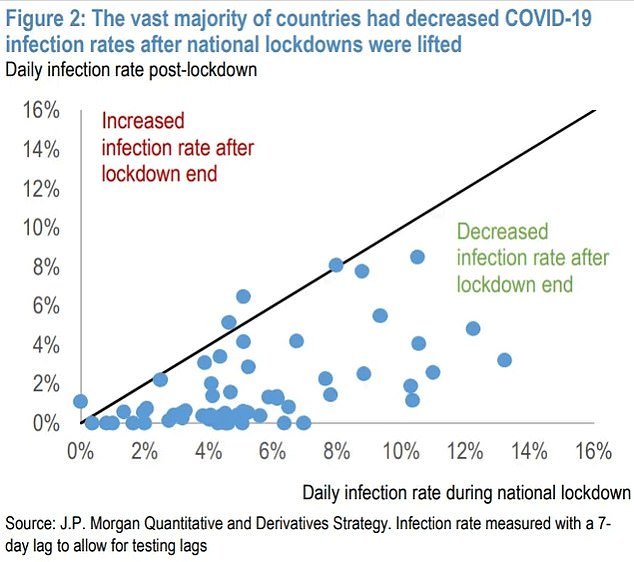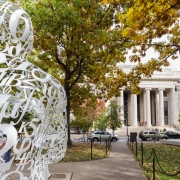Why Can’t Free Markets Do A Better Job Of Managing Their Own PR?
Free Markets Are Disdained by Intellectuals
In his 1942 book, Capitalism, Socialism, and Democracy, Joseph Schumpeter famously identified one way in which material prosperity fashions its own camouflage. As society grows ever richer as a result of the workings of free markets – as result, that is, of what Deirdre McCloskey calls “innovism” – it supports and equips larger and larger numbers of intellectuals who speak and write (and now also blog and tweet) against the very economic system that makes their existence possible and that provides them with the platforms and tools they use to trumpet their uninformed hostilities.
Intellectuals’ tirades against free markets would fall on unhearing ears, however, if the reality of market-created abundance were more clearly seen. If ordinary people today in places such as North America and western Europe generally realized that their daily access to goods and services make them not just a bit richer, but about 3,000 percent richer, than was nearly every human being who lived prior to the year 1800, ordinary people today would not take their immense prosperity for granted. They would take notice of it and marvel at it.
But this enormous material prosperity appears to the modern eye instead simply to happen. Free markets work so very effectively and smoothly that material prosperity seems to come automatically from nature. And because the processes of wealth creation, along with the absolute amounts of prosperity, are thus unnoticed by the modern eye, the focus turns to individual differences, at the margin, in prosperity. The store clerk in Sarasota or Seattle takes no notice of the solid roof over her head, the hard floor beneath her feet, her closet full of clothing, her pantry and refrigerator full of food, herself and her children vaccinated against polio and measles, and the astounding computing power that she regularly totes around in the form of a smartphone. These marvels are to her very much as water is to a fish.
She is, though, keenly aware that she has in her bank account fewer dollars than a hedge-fund manager has in his, and that when she flies to New York to visit family she must crowd herself into a coach seat while Jeff Bezos can take the same trip lounging comfortably in his private jet. And if this woman somehow isn’t yet woke to just how much more money the superrich rake in relative to what she earns, intellectuals are hard at work daily churning out op-eds, blog posts, tweets, podcasts, YouTube videos, Hollywood movies, and anvil-heavy tomes to inform her of the misery, oppression, and economic injustice that capitalism habitually inflicts on her and other ordinary people.
Some of the diatribes that intellectuals spit out against the free market and its champions are complete fabrications tethered to reality, if at all, only in their most inessential parts. Recent examples of such pseudo-history include the New York Times’s now-infamous 1619 Project, and Duke University “historian” Nancy MacLean’s 2017 book, Democracy in Chains, which purports to tell the story of the late Nobel-laureate economist and classical liberal James Buchanan. (I often wonder what Professor MacLean thinks of another man boasting the name “James Buchanan” – specifically, the tobacco entrepreneur James Buchanan Duke, who endowed the prestigious university at which she is tenured.) Whether such fabrications are intentional or, instead, the result of Herculean incompetence is here irrelevant.
Other indictments offered by intellectuals against capitalism, however, do spring from some genuine fact or facts. But these facts are misunderstood and misinterpreted. It is, for example, true that working conditions in third-world factories are appalling compared to working conditions in factories in countries such as the U.S., Canada, and Germany. It’s true also that wages in developing countries are significantly lower than are wages in developed countries.
Yet it is not true that these facts reflect a defect of capitalism. Quite the opposite. Work in capitalist-enabled factories in Vietnam and Madagascar is a much better option for those workers compared to their alternatives. Furthermore, as Benjamin Powell and other scholarshave argued, the economic development that results – if free markets are allowed to continue to flourish – steadily improves the living standards of the people of such countries. By giving people in desperately poor countries the option of leaving subsistence agriculture in order to work in factories that produce goods for consumers in rich countries, markets bring those poor workers to the attention of those of us in rich countries. But we in rich countries mistake the economic improvement that we actually see for what merely appears to us to be capitalist oppression.
True But Misleading Statistics
Back at home capitalist successes also often generate ‘true statistics’ that tell misleading tales. Consider, for example, the statistical quirk created when increasing wealth and health reduce the average size of households. As we grow wealthier, young adults are better able to move out of the family home into their own apartments. Women are better able to divorce abusive or unfaithful husbands and set up households on their own. Widows and widowers can more easily afford to live alone rather than move in with their siblings or children. With more wealth and health, grandma and grandpa can live longer by themselves on their retirement savings.
This reduction in the number of people who reside in the typical household pulls down the measured income of the average household. And so when the inflation-adjusted income of the average (or median) household of today is found to be only modestly higher than that of the average (or median) household of decades ago, “Progressives” and many conservatives mistakenly conclude that the market has failed ordinary people.
Another statistical illusion is created when inflation chips away at the real value of the legislated minimum wage. As the real value of the minimum wage falls, some low-skilled individuals who in the past were unemployable become employed. This increase in the number of workers paid wages below the average pulls the average wage rate down, thus creating the false impression among careless observers that workers are being oppressed by employers.
A similar statistical misimpression can arise as improvements in the likes of home appliances and store-bought prepared meals increase the attractiveness to women of working outside of the home. Because the typical woman who first enters the workforce at the age of, say, 30 or 40 has less workplace experience and fewer workplace skills than does the average worker, the wage this woman is paid will at first be lower than the average wage. The average wage will thus be pulled downward despite the fact that no worker’s wage has fallen. This statistical quirk can mislead careless observers to the incorrect conclusion that wages are stagnating and, thus, markets are failing.
Precisely because free and innovative markets ceaselessly expand our range of opportunities, comparing the economic statistics of today with those of yesterday too often masks the improvements brought to us by markets. What appear to blinkered or incautious eyes to be market failures are often the fruits of market successes. Unfortunately, persons who are hostile to markets never hesitate to exploit these misimpressions.












